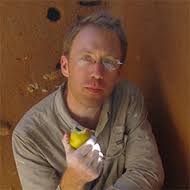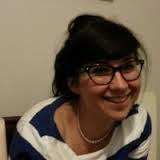Software Carpentry
See the following -
How Computers Broke Science – and What We Can Do To Fix It
 For most of the history of science, researchers have reported their methods in a way that enabled independent reproduction of their results. But, since the introduction of the personal computer – and the point-and-click software programs that have evolved to make it more user-friendly – reproducibility of much research has become questionable, if not impossible. Too much of the research process is now shrouded by the opaque use of computers that many researchers have come to depend on. This makes it almost impossible for an outsider to recreate their results. Recently, several groups have proposed similar solutions to this problem. Together they would break scientific data out of the black box of unrecorded computer manipulations so independent readers can again critically assess and reproduce results. Researchers, the public, and science itself would benefit.
For most of the history of science, researchers have reported their methods in a way that enabled independent reproduction of their results. But, since the introduction of the personal computer – and the point-and-click software programs that have evolved to make it more user-friendly – reproducibility of much research has become questionable, if not impossible. Too much of the research process is now shrouded by the opaque use of computers that many researchers have come to depend on. This makes it almost impossible for an outsider to recreate their results. Recently, several groups have proposed similar solutions to this problem. Together they would break scientific data out of the black box of unrecorded computer manipulations so independent readers can again critically assess and reproduce results. Researchers, the public, and science itself would benefit.
Mozilla's Science Lab Is a Hub for the Open Research Community
Since the launch last June of Mozilla Science Lab, we’ve been working to unpack what science on the web and like the web means, and what Mozilla can do to support it. The Science Lab was created to serve as a neutral broker and hub for the open science community—a means of bridging the gap between the early adopters and the many scientists who understand the value of open science, but who have not yet (for a number of reasons) mapped that understanding onto their day-to-day workflow...
- Login to post comments
R Consortium Launches 7 Community Projects
 The R Consortium, an open source foundation to support the R user community and a Linux Foundation project, today is announcing funding for seven community projects and the formation of two technical working groups. These milestones advance the R Consortium’s mission to support the R community through the identification, development and implementation of infrastructure projects that drive standards and best practices for R code. The R programming language provides an unparalleled interactive environment for data analysis, modeling, and visualization. R is a top-20 programming language (see: TIOBE Ranking Index), and its popularity is expected to grow with data demand.
The R Consortium, an open source foundation to support the R user community and a Linux Foundation project, today is announcing funding for seven community projects and the formation of two technical working groups. These milestones advance the R Consortium’s mission to support the R community through the identification, development and implementation of infrastructure projects that drive standards and best practices for R code. The R programming language provides an unparalleled interactive environment for data analysis, modeling, and visualization. R is a top-20 programming language (see: TIOBE Ranking Index), and its popularity is expected to grow with data demand.
- Login to post comments
‘Open Source, Open Science’ meeting report – March 2015
 On March 19th and 20th, the Center for Open Science hosted a small meeting in Charlottesville, VA, convened by COS and co-organized by Kaitlin Thaney (Mozilla Science Lab) and Titus Brown (UC Davis). People working across the open science ecosystem attended, including publishers, infrastructure non-profits, public policy experts, community builders, and academics. Read More »
On March 19th and 20th, the Center for Open Science hosted a small meeting in Charlottesville, VA, convened by COS and co-organized by Kaitlin Thaney (Mozilla Science Lab) and Titus Brown (UC Davis). People working across the open science ecosystem attended, including publishers, infrastructure non-profits, public policy experts, community builders, and academics. Read More »
- Login to post comments